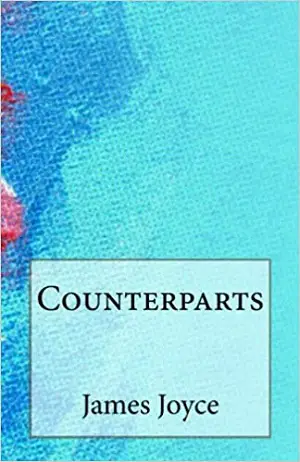
You gave us some sociological detail a while age concerning "The Boardinghouse." One of Joyce's aims was to get the sociological and other details precisely right, so that for me the stories sometimes have a case-history quality. I remember noting that the word "counter" was used several times, both in Farrington's place of business and of course in the drinking establishments he visited on his big night. What I really wondered is, what the heck does the title mean?! Who is Farrington's counterpart? When reading this story I wondered if Joyce was intentionally painting a portrait of the limitations of opportunity and what happens to people in confining situations - they get depressed and sometimes mean. People use alcohol to deal with life when they lack other resources to deal and sometimes this leads to alcoholism. No one wakes up one day and decides to be an alcoholic.

As despicable a character as he is, I do feel a general sort of sympathy for him as an alcoholic. The introducer in the Everyman edition of Dubliners that I picked up also says, "Joyce's artistic challenge in Dubliners is to excite sympathy for characters who appear hopeless, and to render significant lives that seem without significance, and to do this without falling into pathos."įarrington is an alcoholic.

What is Joyce's purpose is presenting such an unrelieved picture of selfish, boorish, and violent behavior? Is it just for the sake of telling it to the Irish like it is? Joyce himself said that his purpose was to portray "the reality of experience," and further that in that effort he would "write a chapter in the moral history of my country."

DWill wrote:There might be competition for the title of least likable character in Dubliners.


 0 kommentar(er)
0 kommentar(er)
